
Fruit is for [eating], not for [drinking];Plain boiled water is the most perfect and healthy drink in the world.
On May 22, 2017, the American Academy of Pediatrics (AAP) issued the latest guidelines on drinking fruit juice for infants. The guidelines pointed out that babies under one year old cannot eat fruit juice.
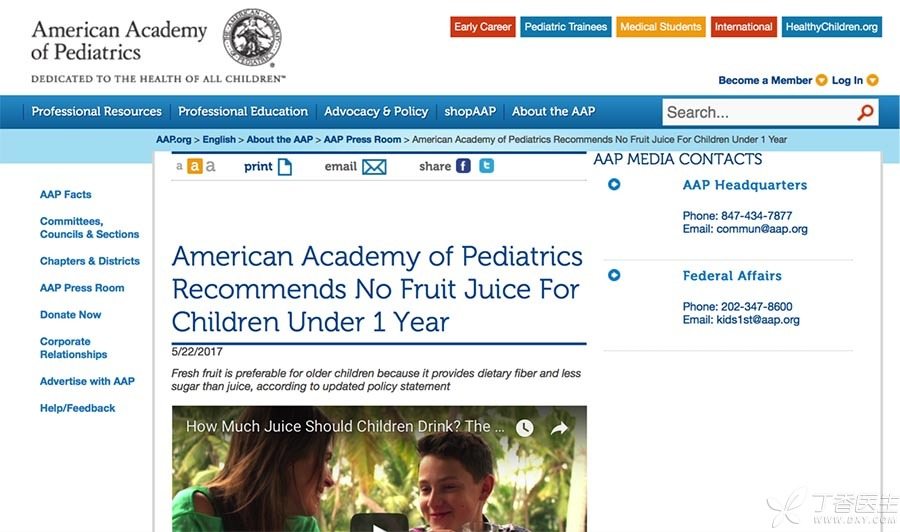

Please note the words Policy Statement circled in red in the picture: very serious, which means: must, must, strictly…
In short, all the words you can think of to express [mandatory constraints].
Previously, AAP’s position was not to give fruit juice to infants under the age of 6 months, and to drink fruit juice in a limited amount every day after the age of 6 months, but the nutritional benefits of drinking fruit juice after the age of 6 months are not as good as eating fruit directly.
From 2001 to 2017, AAP made adjustments on this issue for the first time: you should know that in 16 years, the medical profession will not easily make unnecessary corrections to a view that has been maintained for so many years.
Today, Dr. Clove will take you to explain why AAP has pulled fruit juice into the [blacklist].
On fruit juice, parents must read it at 7 o’clock.
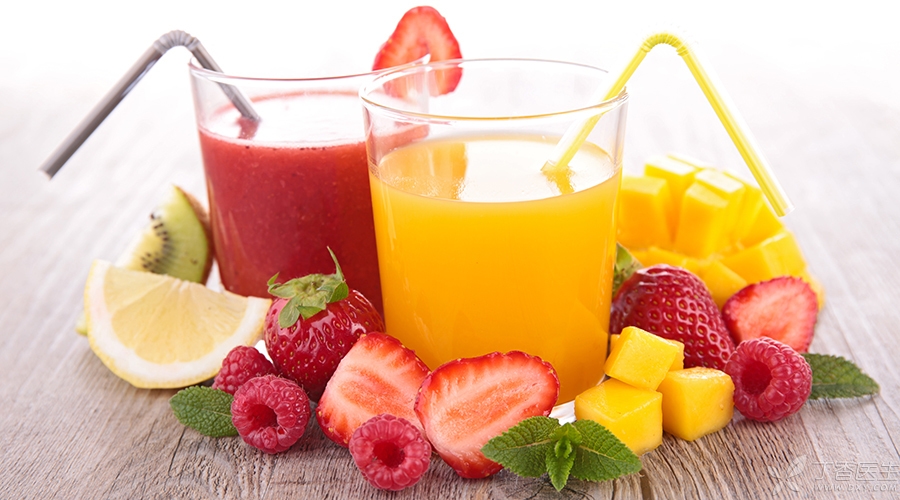
1. The definition of fruit juice refers to 100% sterilized pure fruit juice (note: it is not freshly squeezed by one’s own home).
Blended fruit juice, essence pigment, sugar sweetener, etc. are blended into fruity beverages, fruit wines, diluted fruit juice and fruit water with a concentration of less than 100%-you can think they are [completely banned]!
2. For infants under 1 year old, fruit juice has no nutritional advantage.
Babies under 1 year old must not drink fruit juice (pure fruit juice or not).
3. Compared with complete fruit pulp, fruit juice has no nutritional advantages.
It can only be a bit part for infants of any age and children’s healthy and balanced diet structure, and has no important significance.
4. Even at the age of 1, pure fruit juice can only be the [health helper] in children’s balanced diet, not the leading ABC.
As for fruit drinks (those mentioned in Article 1), their nutritional value is not as good as pure fruit juice, so they can only be [ha ha].
5. Children over 1 year old should have a limit on drinking fruit juice.
Children aged 1-3 years old, even if they can drink pure fruit juice, should not drink more than 4 ounces (about 120ml) per day.
Children aged 4-6 should not drink more than 4-6 ounces (about 120-180ml) per day.
Children aged 7-18 should not drink more than 8 ounces (about 240 milliliters) per day.
Specifically, the allowable drinking amount requires professionals to evaluate it according to the children’s energy consumption and dietary nutrition intake.
6. For children who can drink a small amount of pure fruit juice, please be sure to drink it in a cup! No bottles!
7. Juice cannot be used to treat dehydration and diarrhea!
Is fruit juice really as nutritious as imagined?
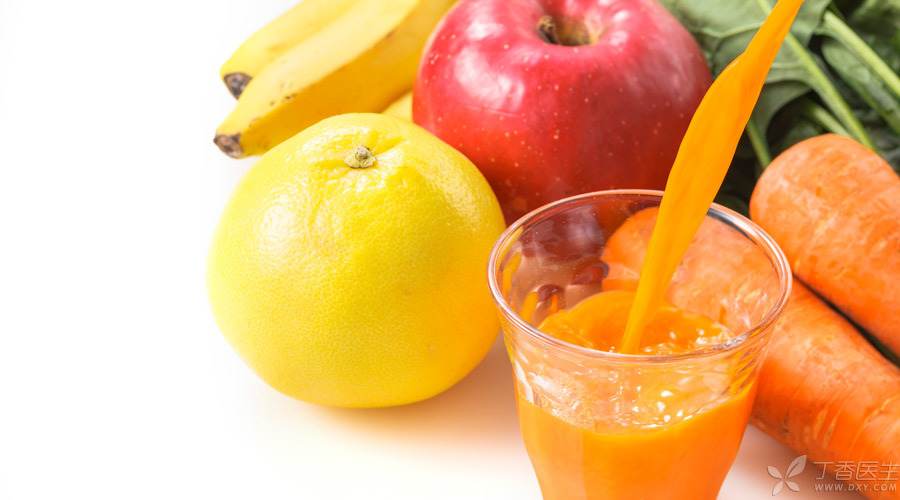
Let’s look at the nutritional ingredients of fruit juice:
1. Main Nutrients-Water
The concentration of carbohydrate, a minor nutrient component, ranges from 11 g to 16 g% (0.44 kcal/mL to 0.64 kcal/mL), mainly including sucrose, fructose, glucose and sorbitol (here, the concentration of carbohydrate in breast milk and standard infant formula is 7 g%).
2. Protein-Trace
3. Fat or Cholesterol-Zero
4. Minerals-Some fruit juices contain potassium, vitamin A and vitamin C
Some fruit juice drinks will be added with vitamin C, while others will be added with calcium (even if the calcium content of milk can be approached by adding calcium, it cannot provide rich magnesium like milk).
5. Dietary Fiber-If there is no pulp in the juice,
Dietary fiber is almost zero.
It is worth mentioning that fruit juices specially produced for infants, although not containing sulfite or added sugar, are more expensive than conventional fruit juices! The key is that the nutritional value is the same as above.
Many parents use diluted fruit juice to treat constipation or replace water to supplement liquid for their children-they certainly don’t know: it is precisely because more and more evidence shows that infants drinking fruit juice may cause obesity and dental caries that AAP ceremoniously revised the guidelines.
Harm of Adding Juice to Babies Prematurely
Some mothers will say:
Even if fruit juice is not as nutritious as fruit, it is OK to give your baby some to drink.
Worries about fruit juice really go far beyond this.
1. Adding fruit juice too early will affect milk intake.
Premature addition of fruit juice affects infants’ acceptance of breast milk or infant formula and milk quantity, and may lead to a decrease in intake of protein, fat, vitamins and minerals (such as iron, calcium and zinc)-malnutrition (including obesity and emaciation) and short stature in some infants and children are related to excessive intake of fruit juice.
2. Pharmacists knock on the blackboard: juice-drug interaction, not juice to feed drugs!
Flavonoids contained in fruit juices of many fruits (such as grapes, pomelo, blueberries, pomegranates and apples) may reduce the bioavailability of certain drugs and the activities of various enzymes and transporters during metabolism (not listed here).
Therefore, whether you can drink fruit juice during taking medicine needs to be negotiated by pharmacists and pediatricians.
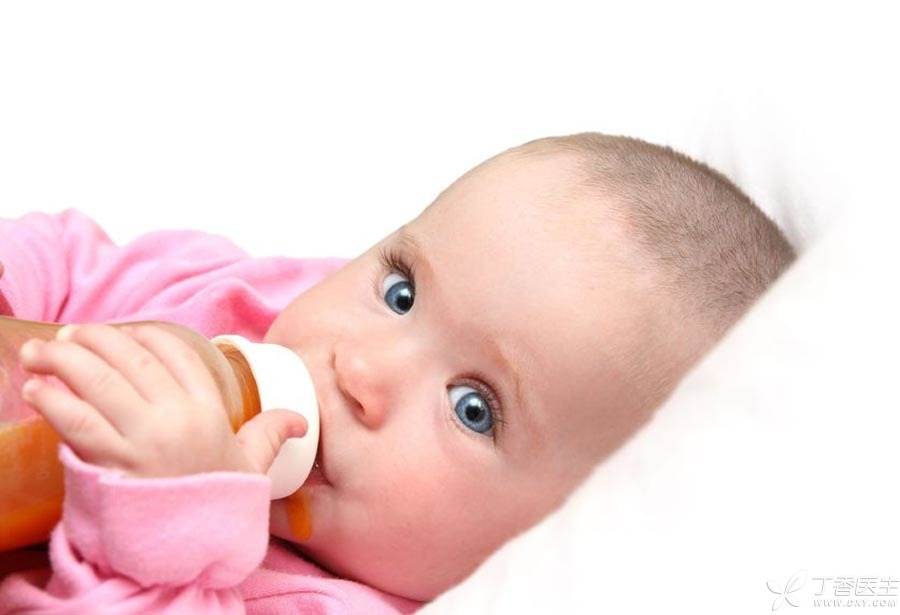
3. It is easy to cause osmotic diarrhea in infants.
The absorption rate of the four sugars in fruit juice is limited by their respective contents and proportions. When the proportion is unreasonable, unabsorbed carbohydrates will be fermented by bacteria in colon to produce hydrogen, carbon dioxide, methane, short-chain fatty acids acetic acid, propionic acid and butyric acid. Some of these gases and fatty acids will be reabsorbed through colon epithelium and removed from intestinal tract.
However, if there is too much unabsorbed carbohydrate, it will produce osmotic load on the gastrointestinal tract, causing osmotic diarrhea in infants. Although this kind of diarrhea is not a major event in what, it may not be a minor event when encountering malnutrition or other digestive tract problems!
4. Potential microbial safety hazards.
Any fruit juice that has not been sterilized, such as home-made freshly squeezed fruit juice, may contain Escherichia coli, Salmonella, and Cryptosporidium, which threaten children’s health.
5. Juice of citrus fruits often causes skin allergy symptoms of infants.
It is mainly some acid substances contained in fresh juice.
Repeatedly emphasize and summarize the main points.
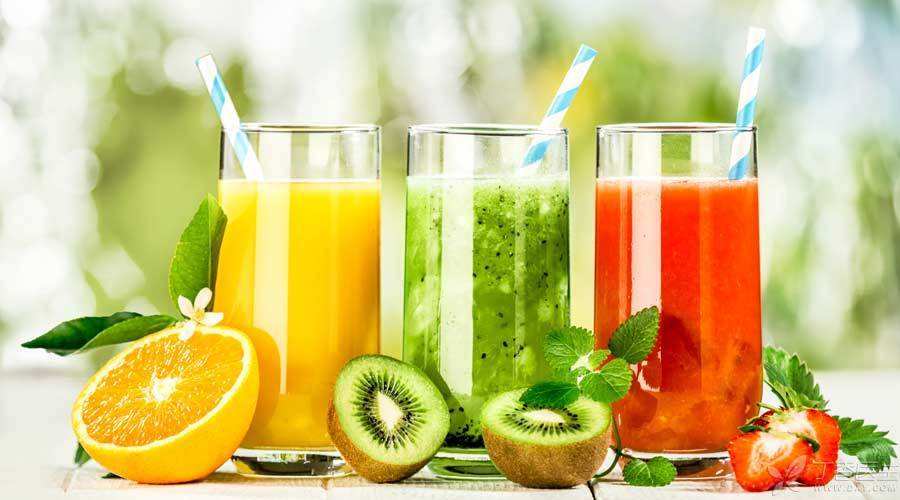
1. For infants under 6 months old, the water in breast milk or infant formula is enough to meet the liquid needs. There is no need to use all kinds of messy drinks, including pure fruit juice, to help. Note by Chinese parents: Don’t feed your baby [fruit water]-such nutritious things have no meaning except to drag your baby’s health.
2. Add fruits not earlier than 6 months.
3. For infants aged 6 ~ 12 months, fruits are only eaten but not drunk-the nutritional value of fresh fruits is undoubtedly higher than that of any form of fruit juice.
4. For children and children over 1 year old, 100% pure fruit juice (sterilized) can be used as a small part of children’s healthy diet. However, it is still recommended to eat complete fruits as much as possible, because: the nutritional value of complete fruits > pure fruit juice.
5. The nutritional value of fruit juice drinks is far less than that of pure fruit juice. Explain the extra sound of AAP: Pure fruit juice should be limited, not to mention those that are blended with concentrated fruit juice or added with extra sugar, or even fake products that do not contain fruit juice at all and are seasoned with essence and pigment. ! !
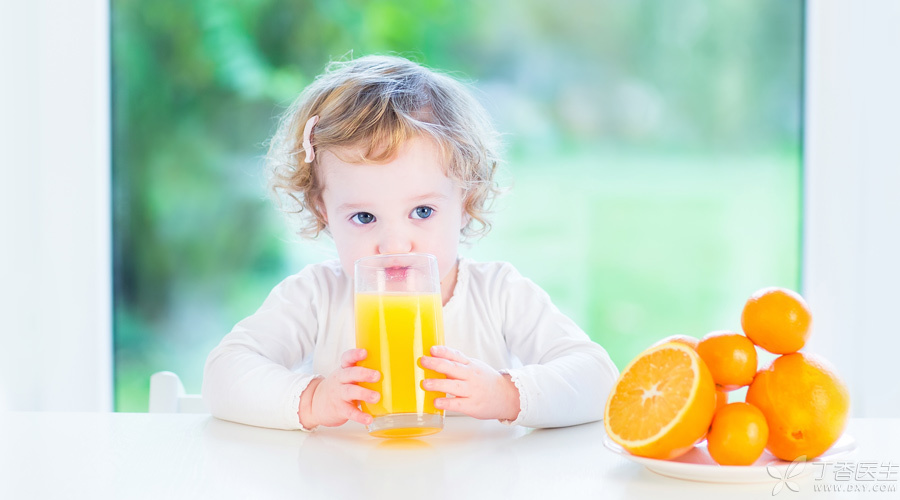
6. Please do not put fruit juice in bottles or straw cups. This is easy for infants to have the opportunity to drink it in their hands at any time. As a result, children’s teeth will suffer from tooth decay due to excessive contact with sugar. If children are allowed to drink fruit juice due to [medical needs], they must drink it in cups. In addition, do not give children fruit juice before going to bed at night.
7. Don’t think that fruit juice added with certain nutrients is [unique nutrition], and don’t think that the more expensive what food is, the better. No matter how expensive it is, it is just the fruit juice that we have deeply analyzed above! There is no way to compare with milk and fresh fruit-except for convenience to drink.
8. For small fat dun and small bean sprouts, please consult professionals with clinical nutrition knowledge and experience before considering whether to feed fruit juice and how much is appropriate.
9. Do not use fruit juice to treat infant diarrhea or dehydration! ! ! -Knock on the blackboard repeatedly! ! !
